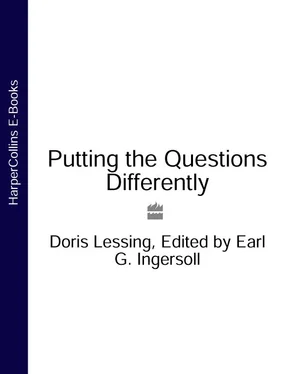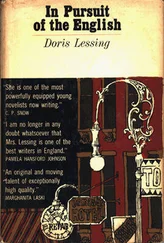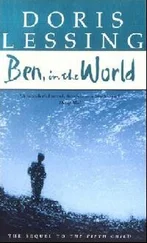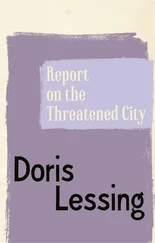Doris Tayler Lessing was born in 1919 of English parents in Kermanshah, Persia (Iran). Her father had survived the First World War with psychological as well as physical wounds. Like many veterans, he was dismayed by England and took a bank job in Persia, hoping to start over in a different country. In her words, he was something of a dreamer, and when he happened on an agriculture fair he suddenly decided to move his family to Southern Rhodesia, as Zimbabwe was then called. Mrs. Lessing grew up in Southern Africa, where Marxism attracted her, along with many other sensitive young whites, since it seemed the only political ideology addressing itself to racial injustice. In 1949, as a young woman in her late twenties, she left her second husband Gottfried Lessing and accompanied by their son Peter moved to London where she has continued to live. She brought with her the manuscript of The Grass Is Singing. It was not her first attempt at the novel, since as she has told her interviewers, she destroyed the manuscripts of two earlier apprentice works. Its critical success and modest royalties launched her as a writer. Years later, she has been amused at her innocence in assuming that she would be able to support herself and her son through writing, but then, as she remarks, writers in mid-century England seldom aspired to the huge sales and royalties to support extravagant life styles that young writers often hope for today.
During the ’50s and ’60s, The Grass Is Singing was followed by the five volumes of her Children of Violence series. The first three in the series – Martha Quest, A Ripple from the Storm, and A Proper Marriage – as she herself admits, drew heavily upon her own experience as a young woman. Her next novel, The Golden Notebook (1962), was not part of the Children of Violence series. Still probably her best-known work, The Golden Notebook began an accelerated movement away from the autobiographical impulse in her fiction. Unfortunately, her readers have often been unwilling to accept her assertion that the women characters are not Doris Lessing in disguise. Those readers have had particular difficulties with The Golden Notebook, which some American feminists tried to read as a bible of Women’s Liberation. As Mrs. Lessing repeats throughout the later interviews, she had quite different interests in her famous novel and has deeply resented its appropriation as a weapon of sexual politics. Indeed, one distinct theme in these interviews is Mrs. Lessing’s attempt to rescue her own fiction from her readers who often want to reduce its complexity to their own narrow points of view.
In many ways, The Four-Gated City is among Mrs. Lessing’s most important novels. Like The Golden Notebook, it is one of those novels written for readers in the future. She has often indicated her sadness that there are no nineteenth-century novels giving readers in this century a better understanding of a movement like Chartism, for example. She goes on to say that she had hoped The Golden Notebook would offer future readers a clearer sense of what sensitive, thinking people were concerned with in mid-century England. The Four-Gated City fulfills that need for the ’60s. However, it also points toward her continuing interests throughout the ’70s and ’80s, especially toward her interest in the “space fiction” that would precipitate a kind of crisis in her literary reputation.
Central to her later interests is the attempt to move out of the realist mode that brought her critical acclaim and a large readership for her earlier fiction. Briefing for a Descent into Hell and The Memoirs of a Survivor are the clearest evidence of that movement away from conventional realism toward “inner space.” Both are “difficult” novels because they demand more “willing suspension of disbelief” than many of her readers have been prepared for, even though fictional exploration of “insanity” in The Golden Notebook and the apocalyptical last section of The Four-Gated City point in that direction. And then, almost to demonstrate that she had not said farewell to the realist mode, The Summer Before the Dark appeared in 1973, between Briefing and Memoirs, creating difficulties once again for those bent upon “categorizing” her writing or smoothly plotting the course of her “career.”
More than anything, it was toward her problematical “space fiction” that The Four-Gated City pointed the direction. In 1979 she launched the Argos in Canopus series with the “novel” Re: Colonised Planet 5, Shikasta. If its readers were surprised and puzzled, it was in part because they had not paid enough attention to the increasing presence of science fiction on the literary scene in her watershed novel, The Four-Gated City. These same readers may also have misread Mrs. Lessing’s interest as an attempt to join the virtually universal chorus of scoffers at this “sci-fi,” to use the persistent “mainstream” and media term of amused disdain for a fiction damned in part for its popularity. She has preferred the term “space fiction” for the Canopus series, not because she wants to dissociate it from “science fiction,” but only because she admits to having too little formal training to claim that her writing is “science fiction.” As she indicates in the interviews that follow, she turned to space fiction because it alone offered her the opportunity to range freely in time and space and to find metaphors to express her concern with contemporary problems and issues.
The response to the Canopus series among her readers, both professional and “common,” has been astounding. In reviews of the novels, in critical articles, and in letters to Mrs. Lessing herself, many readers have indicated their dismay that she has been wasting her talent writing fantasy. Some who have been particularly dismayed are those readers still waiting for her to write another Golden Notebook, or at least a “women’s book,” like The Summer Before the Dark. She has persisted, however, past the second Canopus novel, The Marriages of Zones Three, Four, and Five, which is about as close as she has come in the series to pleasing that readership. The latest three novels in the Canopus series are more similar to Shikasta than to Marriages. One of these, The Making of the Representative for Planet 8, has led to yet another new departure for her writing, the libretto for the opera of the same name, written in collaboration with Philip Glass, an artist whose work has also had its share of detractors.
The most recent of the Canopus novels deliberately ends without a clear sense of closure. As Mrs. Lessing indicates, she plans a sixth novel and perhaps even more in the series. She has been “sidetracked,” she says, by The Fifth Child and The Good Terrorist, as well as by African Laughter, her memoirs of four visits to Zimbabwe, and by the first volume of her autobiography. The two novels that “sidetracked” her might be misread as her bowing to the pressure of those readers bent upon returning her writing to the realist mode. Certainly, they are more realist than the fiction beginning with Briefing; they represent, however, in the clearest fashion, Mrs. Lessing’s insistence upon her own artistic integrity and the freedom to write in diametrically opposed modes, as they suit her differing interests as a writer.
Although she is perhaps best known as a novelist, we ought not to ignore her accomplishment in other genres. In addition to essays and memoirs, she has published well over a dozen collections of shorter fiction; indeed, her most recent work at this writing is The Real Thing (English title London Observed) a collection of short stories and sketches. As she comments in the interviews that follow, she has also had a love affair with the theater – Play with a Tiger was produced in London in the early ’60s – with all the passion and heartbreak implied by that commonplace metaphor.
Читать дальше












